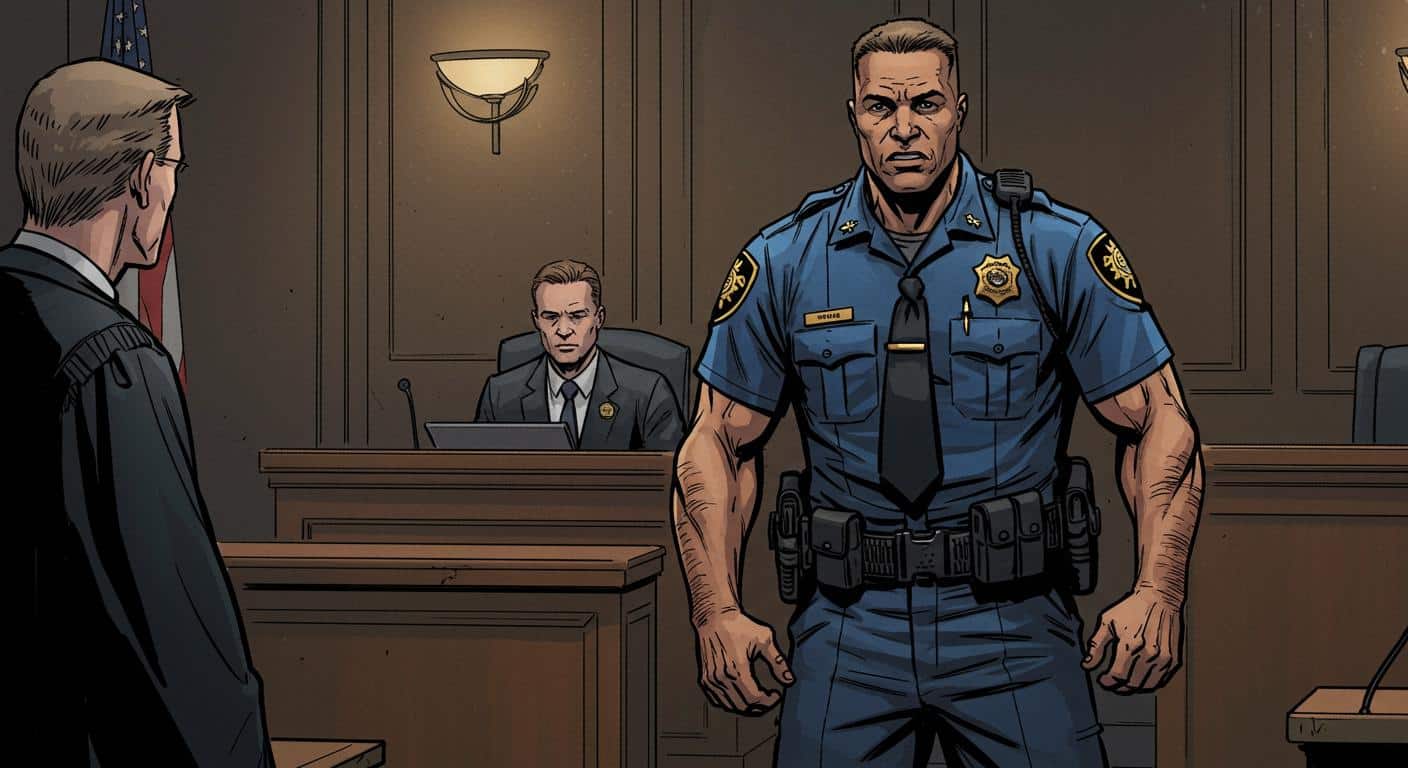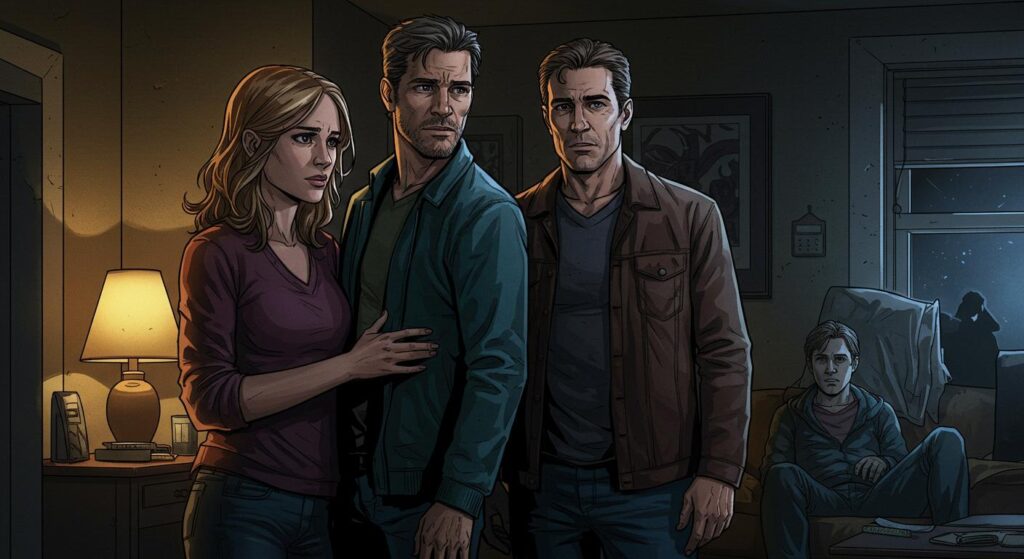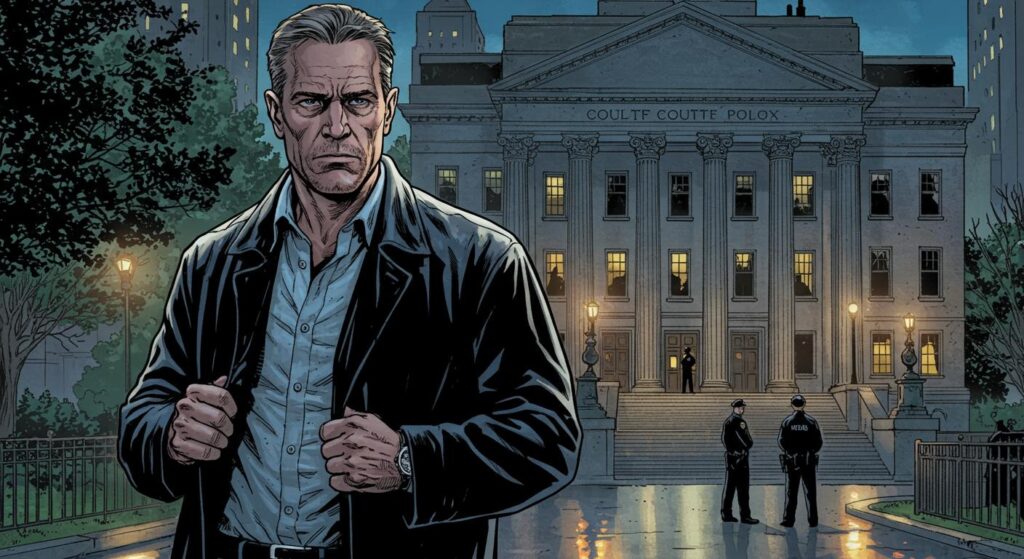Sometimes a story lands in the records that makes you pause, adjust your metaphorical glasses, and ask, “Wait, did that actually happen?” Nashville has obliged with just such an entry, thanks to Sean Herman—a police officer whose brief experiment in multitasking on city time has now made its way from the site archive of OnlyFans to the criminal docket and, inevitably, to the annals of department history.
Policing, Probation, and an Unconventional Performance Review
As court documents and agency statements detailed in U.S. News’ AP report reveal, Herman found himself facing a felony official misconduct charge after law enforcement discovered he’d participated in an adult video while on duty—and, crucially, while wearing his Metropolitan Nashville Police Department uniform. The drama took a procedural twist: faced with the evidence, Herman entered what’s known as a “best interest” plea. It’s an odd legal middle ground that allows a defendant to accept a guilty verdict while still, somewhat paradoxically, maintaining factual innocence.
This arrangement let him walk away with a year of supervised probation. As the outlet notes, a second charge was quietly dismissed, rounding out the official consequences for this union of law enforcement and late-night video content. Wrapped into his sentence was something bureaucrats—both of the legal and personnel records sort—might quietly appreciate: judicial diversion. If Herman completes his probation cleanly, he may have his record effectively wiped, as if his detour into adult cinema had been a mere deleted scene in an otherwise regulation-bound career.
OnlyFans, Department Records, and Real-World Plot Twists
Delving into the details provided by the Metropolitan Nashville Police Department, investigators apparently unearthed the video while tracing activities on OnlyFans—perhaps not the usual venue for interdepartmental reviews. According to officials, as summarized by HuffPost, Herman was clad in uniform during a mock traffic stop filmed in a Nashville warehouse’s parking lot during his scheduled patrol shift. Not your standard “community engagement” activity. The video, as described in the sources, involved groping a female driver as part of its script. It’s not recorded whether the department has issued new memos on “roles and responsibilities,” but one imagines the policy section on acceptable off-duty employment is currently being scrutinized with fresh enthusiasm.
What might the city’s legal archivists make of this? The threads here go beyond the traffic stop: MNPD detectives confirmed to HuffPost that Herman was fired in May 2024, after the department’s Specialized Investigations Division traced and identified him in the footage. Arrest and formal charges followed in June, and by August 2024, Tennessee’s peace officer standards board indefinitely suspended his law enforcement certification. There’s a technical avenue for possible reinstatement after the criminal matter is resolved—though, as the AP previously noted, such opportunities may feel as outlandish as the circumstances that created them.
Bureaucratic Oddity Meets Internet Infamy
Has bureaucracy ever collided so spectacularly with internet culture? In a detail that seems tailor-made for case law seminars on the evolving boundaries of public service, Herman’s video stood out not just for its content but for the context: official work hours, a department-issued uniform, and a parking lot set. The idea of a sworn officer moonlighting mid-shift as a featured performer—filming evidence of the action himself—almost reads as an entry from the “you can’t make this up” ledger. Authorities, citing the MNPD press release, pinpointed the video date and confirmed the setting, clearly leaving little for the imagination in the subsequent paperwork.
One wonders what the records retention schedule looks like for an OnlyFans cameo submitted as evidence. This isn’t so much a simple policy violation as a demonstration of just how elastic the definitions of “on duty” and “personal project” can become in the era of subscription platforms and viral clout-chasing. Did the skit’s production team—however small—consider the logistical risk assessment? Where’s the memo on this? If there’s ever a need to update the city’s digital assets management playbook, surely this is Exhibit A.
The Archival Record: Expunge or Append?
Judicial diversion means that, pending good behavior, Herman’s slip into moonlighting may one day be erased from the formal criminal record—an odd sort of legal redaction, considering the indelible presence of digital breadcrumbs. Expungement may unpack the judicial record, but not the collective memory (or indeed, the inevitable appearance in future “strange-but-true” roundups). In a small but perhaps telling bureaucratic echo, HuffPost reports that messages left with Herman’s attorney went unreturned. Sometimes, silence in the file is as revealing as anything left in writing.
In the Annals of Peculiar Public Records
In the strange appendix of professional misconduct, Sean Herman’s brief intersection of police procedure and adult entertainment is likely to stand out in review—equal parts “what were they thinking?” and “why is there a form for this?” It serves, if nothing else, as a reminder of what can land in the archives when official conduct gets a little too creative. As the dust settles, the story nudges at both the absurdities of modern multitasking and the unpredictable journeys of documentation in the digital age.
In an era where roles can overlap with the tap of a phone camera—and a risky side gig can echo through courts, news wires, and even expungement dockets—perhaps the last word remains with the archivists: is this a cautionary tale, a procedural footnote, or just another bizarre chapter in the ever-thickening public record?







